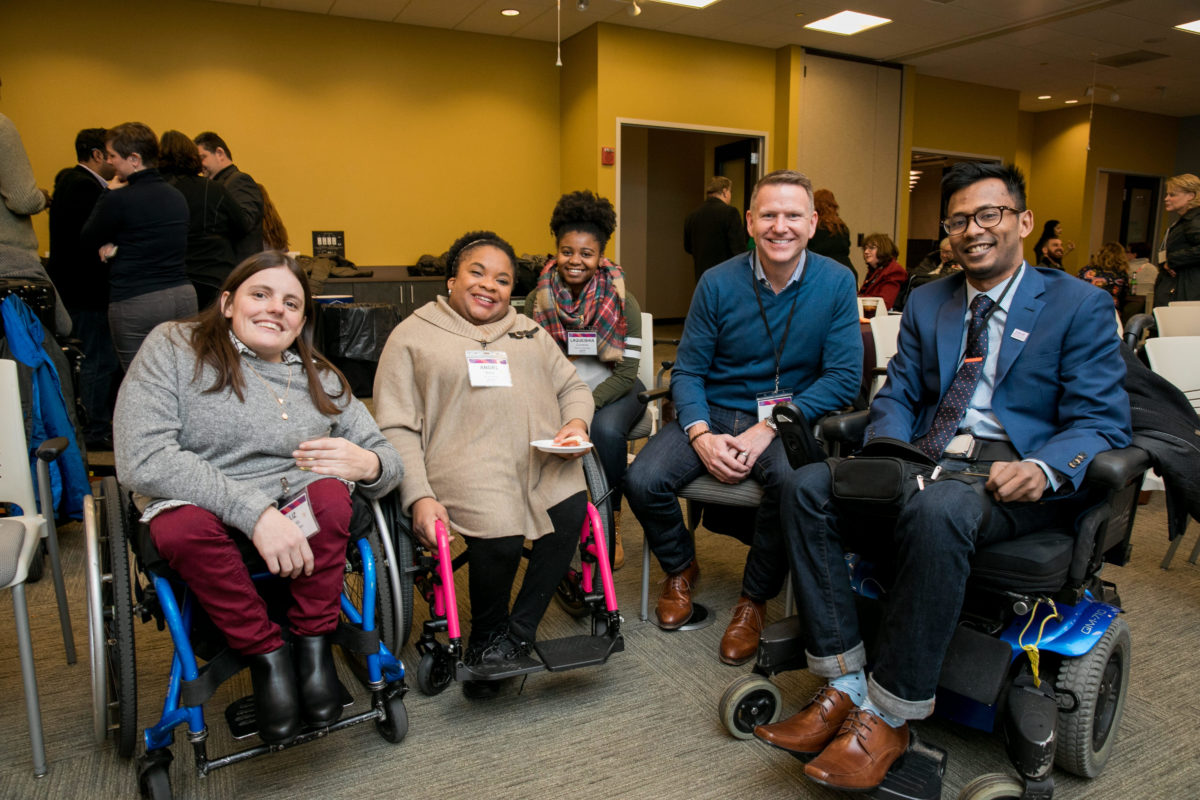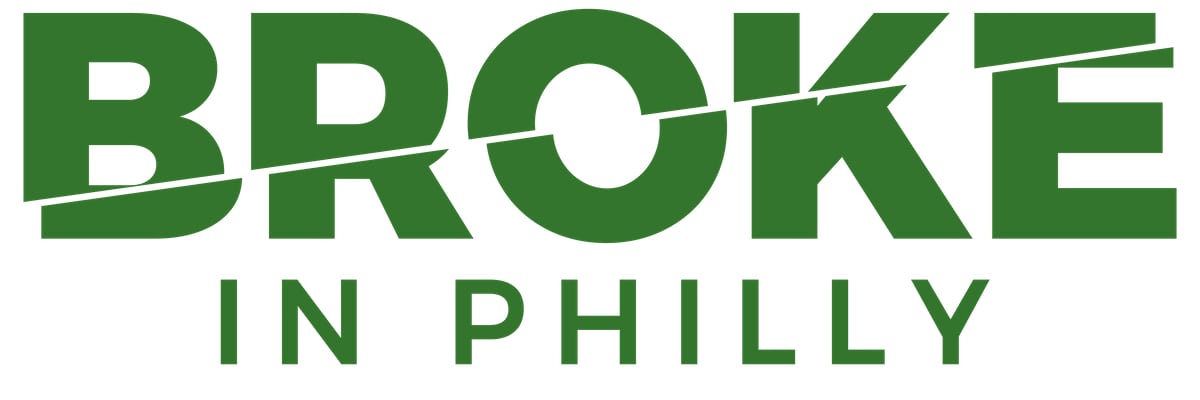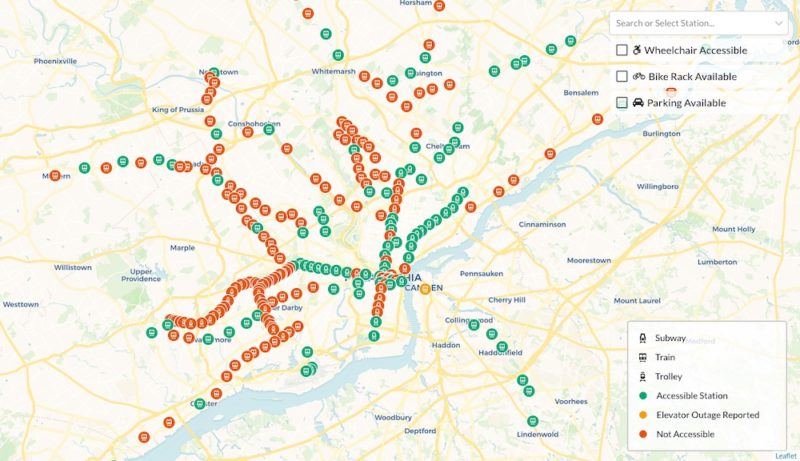At the moment his life changed forever, Ather Sharif was sleeping in the backseat of a southbound car on a wintry North Dakota highway. It was March 2013, somewhere between Grand Forks and Fargo.
“It was nowhere,” said Sharif, 33, a software developer from Pakistan who was studying for a master’s degree at the University of North Dakota at the time. “What I was told is there were icy roads and that it was a bad break, a slip of the tires. That was it, nothing dramatic.”
He woke up paralyzed. Within a few weeks, Sharif was loaded into an air ambulance and flown to Magee Rehabilitation Hospital in Philadelphia — to begin again. He learned to use a wheelchair and found his mission.
Late last month, Sharif won an international award for developing UnlockedMaps, a web-based program born in Philadelphia’s civic hacker community that allows users to see, in real time, how accessible rail transit stations are in six metro areas.
About 20% of transit stations in the United States do not have elevators or ramps, according to the Federal Transit Administration — 32 years after the Americans with Disabilities Act guaranteed equal access to public transportation.
For SEPTA, the picture is worse: 50% of rail transit and Regional Rail stations are accessible, according to an agency status report from last December. And 11 of Camden-based PATCO’s 13 stations have elevator service.

Ather Sharif (right) with part of the ADA 25 fellowship cohort, in 2018. (Courtesy photo)
Unlocked, and Sharif’s mission, began when he volunteered for a 2014 hackathon to develop programs to help people with disabilities navigate Philadelphia, organized by James Tyack, who was then creating an app to track SEPTA elevator outages. Sharif teamed up with Tyack to work on it and later founded nonprofit EvoXLabs with others to work on accessible tech projects, while recovering and earning a master’s in computer science at St. Joseph’s University.
Now based in Seattle, where he’s a Comcast engineer and a doctoral student at University of Washington, Sharif and his collaborators, a group of UW undergrads, collected elevator outage data from more than 2,300 transit stations in Philadelphia, Chicago, Seattle, Toronto, New York and the California Bay Area over the last 28 months to build UnlockedMaps.
The team formed a panel of transit users that included people who don’t use wheelchairs to test the tool.
Lack of ramps and elevators at transit stations, and other things such as platform gaps, also present problems for elderly people with mobility issues, as well as those pushing strollers, wrangling toddlers, carrying packages or heavy backpacks and luggage — plus commuters carrying bicycles aboard trains or work tools and equipment.
After demonstrating UnlockedMaps on Oct. 24 to the ASSETS 2022 Conference on Computers and Accessibility in Athens, Sharif and the UW group won an award for “best artifact” from the academic meeting, which is selective about accepting research projects.
Read the full article here
Technical.ly is one of 20+ news organizations producing Broke in Philly, a collaborative reporting project on solutions to poverty and the city’s push toward economic justice.
Before you go...
Please consider supporting Technical.ly to keep our independent journalism strong. Unlike most business-focused media outlets, we don’t have a paywall. Instead, we count on your personal and organizational support.
Join our growing Slack community
Join 5,000 tech professionals and entrepreneurs in our community Slack today!

Entrepreneurship is changing, and so is the economic development behind it

Tech Hubs’ new $210M funding leaves Baltimore and Philly off the table

Here’s what to know before using AI to craft your brand’s social media posts


